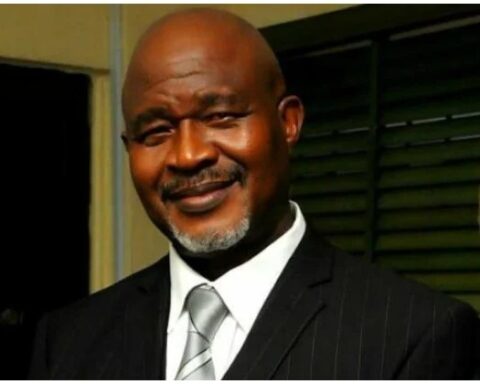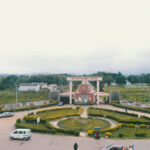By Dr Charles Obiajulu Ugwu
“There is nothing inevitable about death but our belief in it.”
Human civilization has, for centuries, lived under the quiet tyranny of mortality. Death and degeneration have been accepted not only as natural conclusions to life but as sacred inevitabilities—etched into the laws of biology, theology, and even our collective psychology. We have built religions around the finality of life, written poetry to give decay meaning, and tailored entire industries to cushion us through decline. But what if we dared to question this ancient script? What if, as we enter an age of exponential technologies and deepened consciousness, we declared that the degeneration of the human body is not a universal law—but an unsolved problem?
In this article, we chart an audacious new frontier. We ask, not as mystics but as architects of a post-mortal world: Must we degenerate? Must we die? Or have we merely been shackled by inherited paradigms, blind to the regenerative capacities latent within our own biology?
The Biology of Belief: Escaping the Myth of Irreversibility
Human beings are, at their core, systems of components—molecular, cellular, energetic. Like any complex system, these components are subject to wear and tear, to breakdown and dysfunction. But they are also, intriguingly, subject to repair, replacement, and even reprogramming. The human liver regenerates. Our skin renews. Stem cells lie dormant in our tissues, waiting for activation. So why is total systemic regeneration so elusive?
The problem may lie less in biology and more in belief. Science, though powerful, often becomes prisoner to its own consensus. The assumption of irreversibility has guided biomedical research like an invisible hand, diverting curiosity away from radical possibilities. Aging is studied as a gradual failure, not a solvable imbalance. Death is documented, not disrupted.
Yet outside this mainstream, cracks have begun to appear. The frontier sciences—epigenetics, quantum biology, nanomedicine, and synthetic genomics—are dismantling our deterministic models. We now know that gene expression can be reprogrammed. That senescent cells can be purged. That the microbiome influences aging. That the body may not be a static machine, but a dynamic, intelligent system capable of self-renewal given the right inputs.
The Earth as Mirror: Learning from Regenerative Systems
Consider nature. Forests burn but regrow. Grasses are scorched by sun but rebound with rain. Rivers are polluted and yet cleanse themselves over time. Earth is not immortal, but it is regenerative. It carries within it cycles of renewal that do not deny entropy but dance with it. Why should the human organism be any different?
Perhaps our error has been in over-identifying with the material aspects of our form and underappreciating the information-rich, pattern-based intelligence that governs our systems. Life is not merely matter—it is process. And processes can be redesigned.
This is not to romanticize biology but to reconceptualize it. Instead of seeing the body as a passive subject of decay, we must begin to imagine it as a programmable ecosystem. A living architecture of modular components that can be refreshed, recycled, or replaced.
Challenging the Dogma of Death: A New Renaissance of Possibility
The belief that death is inevitable has produced profound art, religion, and humility. But it has also produced resignation. We have invested more in preparing for decline than in preventing it. Medical systems are structured for disease management, not for vitality amplification. Aging is framed as destiny, not dysfunction.
This passivity must end.
The next frontier of human progress is not artificial intelligence or space travel—it is regenerative selfhood. It is the unlocking of biological code to allow for indefinite renewal. It is the hacking of senescence, the rewiring of decay, and the birth of conscious regeneration.
Already, signals of this renaissance are emerging:
Scientists at Harvard and other elite institutions are reversing age markers in mice using partial cellular reprogramming.
CRISPR-based gene editing has shown promise in correcting age-related genetic dysfunctions.
Bioengineers are building tissues and organs in labs, with the long-term vision of full-body renewal.
Nanobots are being conceptualized to perform real-time internal repairs at the cellular level.
The question is no longer whether immortality is possible. The question is: Will we dare to unlearn our reverence for death long enough to explore it?
Toward a Regenerative Culture: The Rise of the Post-Mortal Mindset
But science alone is not enough. If we are to truly embrace a regenerative future, we must also birth a regenerative culture. One that no longer sees aging as noble suffering or death as sacred closure—but views vitality, renewal, and expanded being as worthy goals.
This will require new ethics, new language, new symbols. We must move beyond the tragic heroism of decline and begin to tell new stories—of the phoenix, not the grave; of the cyclic, not the terminal; of the continuously becoming, not the inevitably ending.
Such a culture would:
Prioritize prevention over treatment, wellness over survival.
Integrate spirituality with biology—recognizing consciousness as a driver of physical health.
Democratize longevity technologies, ensuring that renewal is a right, not a luxury.
Rethink education to prepare minds not for a peak-and-decline life arc, but for multiple lifespans, reinventions, and renewals.
The Moral Imperative of Renewal
Skeptics will ask: Should we pursue immortality? Isn’t death natural? Doesn’t it give life meaning?
But perhaps the true moral imperative is not to defend decay, but to expand potential. If we have the ability to reduce suffering, extend health, and unlock deeper layers of consciousness through physical renewal, then we have a responsibility to pursue it.
Immortality is not the goal—it is the byproduct of a deeper aspiration: to master the art of becoming. To transform the human condition from one of passive decline to one of conscious evolution.
Conclusion: The Call to the Courageous
This is not a utopian fantasy. It is a frontier awaiting audacious minds. Like every revolution before it, the journey toward a regenerative human future will be met with ridicule, resistance, and fear. But it will also attract the visionaries—the philosophers, the scientists, the dreamers—who believe that biology, like history, can be rewritten.
We stand today on the edge of a new biological enlightenment. One where man is no longer prisoner to entropy, but partner to eternity. Where we do not simply live longer, but live regeneratively—expanding our identities, our contributions, and our consciousness across uncharted dimensions of time.
Let us then retire the question: “Must we die?” And replace it with a bolder one: “How shall we now live—when decline is no longer our destiny, but our design?”
About the Author
Dr. Charles Obiajulu Ugwu is a critical and creative thinker, systems ideator, and regenerative futurist with a passion for disrupting long-held assumptions about life, biology, and potential. He explores the intersection of science, philosophy, and technology to inspire new paradigms for human flourishing.
Follow us on all social media platforms @dailyquery for news and analyses around the globe.



























